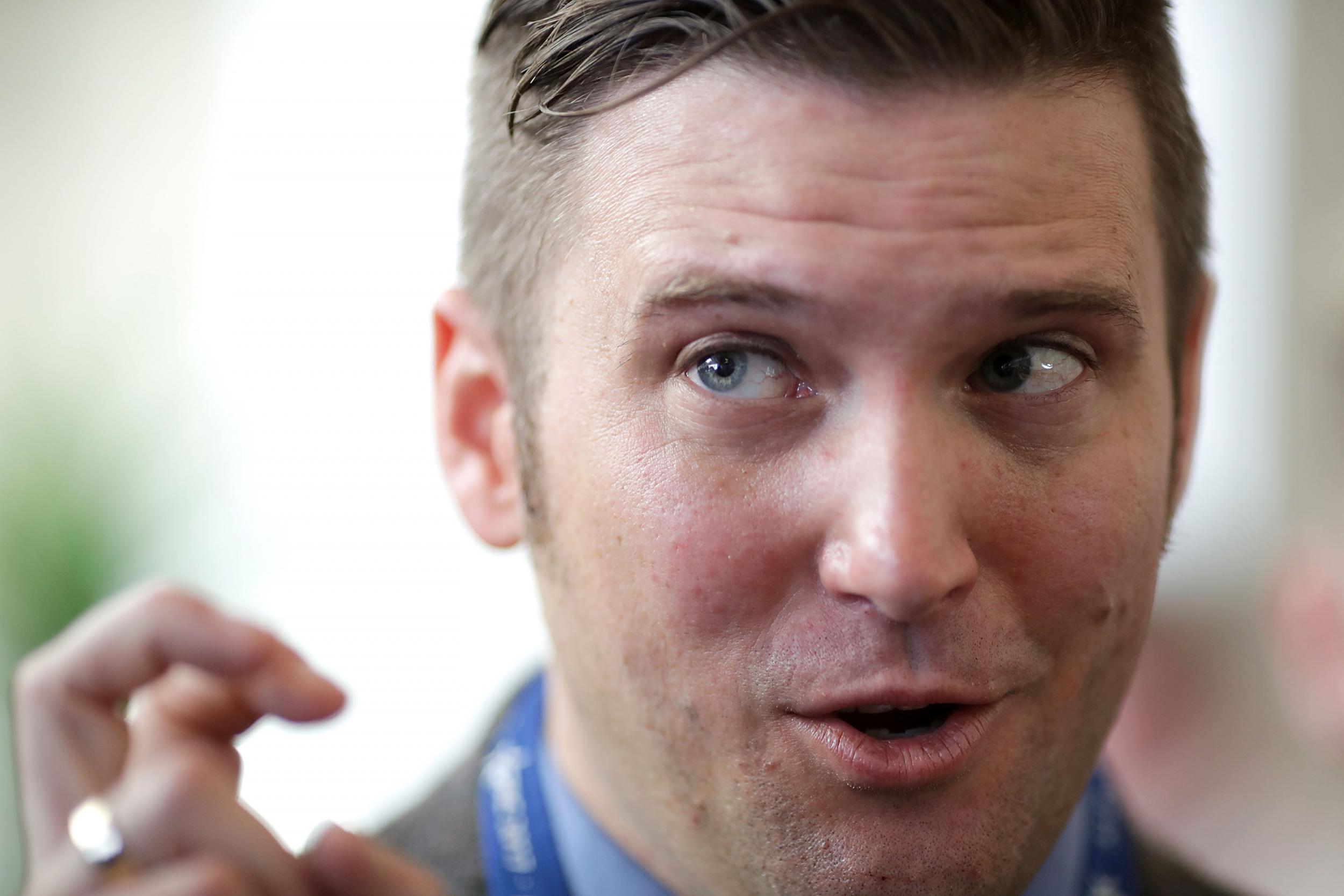Richard Spencer’s Florida speech: Thousands of protesters expected amid state of emergency
'It feels understandably on edge,' a protest organiser says

Your support helps us to tell the story
From reproductive rights to climate change to Big Tech, The Independent is on the ground when the story is developing. Whether it's investigating the financials of Elon Musk's pro-Trump PAC or producing our latest documentary, 'The A Word', which shines a light on the American women fighting for reproductive rights, we know how important it is to parse out the facts from the messaging.
At such a critical moment in US history, we need reporters on the ground. Your donation allows us to keep sending journalists to speak to both sides of the story.
The Independent is trusted by Americans across the entire political spectrum. And unlike many other quality news outlets, we choose not to lock Americans out of our reporting and analysis with paywalls. We believe quality journalism should be available to everyone, paid for by those who can afford it.
Your support makes all the difference.A state of emergency has been declared in Alachua County, Florida, where thousands of protesters and hundreds of police have gathered in advance of a speech by a prominent white supremacist.
Far right figurehead Richard Spencer is due to speak at the University of Florida (UF) on Thursday, marking his first university speech since the Unite the Right rally at the University of Virginia. The August rally descended into violence, leaving dozens injured and one dead.
UF President Kent Fuchs said he is working to prevent a similar outcome at Thursday’s event. In an email to staff and students, he urged community members to stay away from the speech altogether.
“[Do] not provide Mr. Spencer and his followers the spotlight they are seeking” he wrote. “...By shunning him and his followers we will block his attempt for further visibility.”
In service of this goal, the school has cancelled classes and closed roads near the speech. But thousands of protesters appear to be paying no mind: More than 3,000 have RSVPed on Facebook to an on-campus protest called, “No Nazis at UF - Protest Richard Spencer”.
According to the event page, the protesters plan to march to the Phillips Centre, where Mr Spencer will be speaking at 2:30 pm. The group has arranged shuttles to bring people to the protest, and organised groups to provide water. According to the event plage, they plan to keep the protest nonviolent.
“The most important thing that everyone is working for [is] to peacefully get the message that the students, people from Gainesville, and everyone across the state oppose Richard Spencer’s white supremacist ideology,” protest organiser Mitch Emerson told The Independent.
The other important thing, he added, is “to do everything we can to get everyone home safe”.
In the interest of public safety, Florida Governor Rick Scott declared a state of emergency in the surrounding county. The declaration places the Florida National Guard on standby and allows the Alachua County Sheriff to call on specialised security forces from across the state.
The University of Florida Police Department, Gainesville Police Department, Alachua County Sheriff’s Office, Florida Department of Law Enforcement, and Florida Highway Patrol were all dispatched on Thursday, Reuters reported. The school alone said it would pay for an estimated $500,000 in additional security.
Mr Spencer told CBS that the emergency declaration was "flattering" but "most likely overkill."
"I'm not a hurricane or an invading army, at least not literally," he said.
Still, Mr Spencer’s own team was taking additional precautions on Thursday. Cameron Padgett, an organiser for Mr Spencer’s National Policy Institute, told USA Today that only people who looked like Spencer supporters would be given one of the 700 tickets for the speech.
According to Mr Padgett, this was to thwart a local bar’s plan to give free beer to protesters who obtained and discarded an event ticket.
"There's only so many tickets we're allowed to have for the event, so it didn't make sense to let that happen," said Mr Padgett.
Mr Spencer was not invited to UF by a student group, faculty member, or community organisation Instead, the National Policy Institute booked and paid for the speaking space itself.
The university attempted to bar Mr Spencer from speaking when he first applied in August, but backed down when threatened with a free speech lawsuit.
“UF supports the constitutional right to free speech,” the university said in a statement, “and our role as a public university includes legal obligations to allow a wide range of viewpoints to be expressed by external groups – even when they are contrary to the core values of our university.”
Join our commenting forum
Join thought-provoking conversations, follow other Independent readers and see their replies
Comments